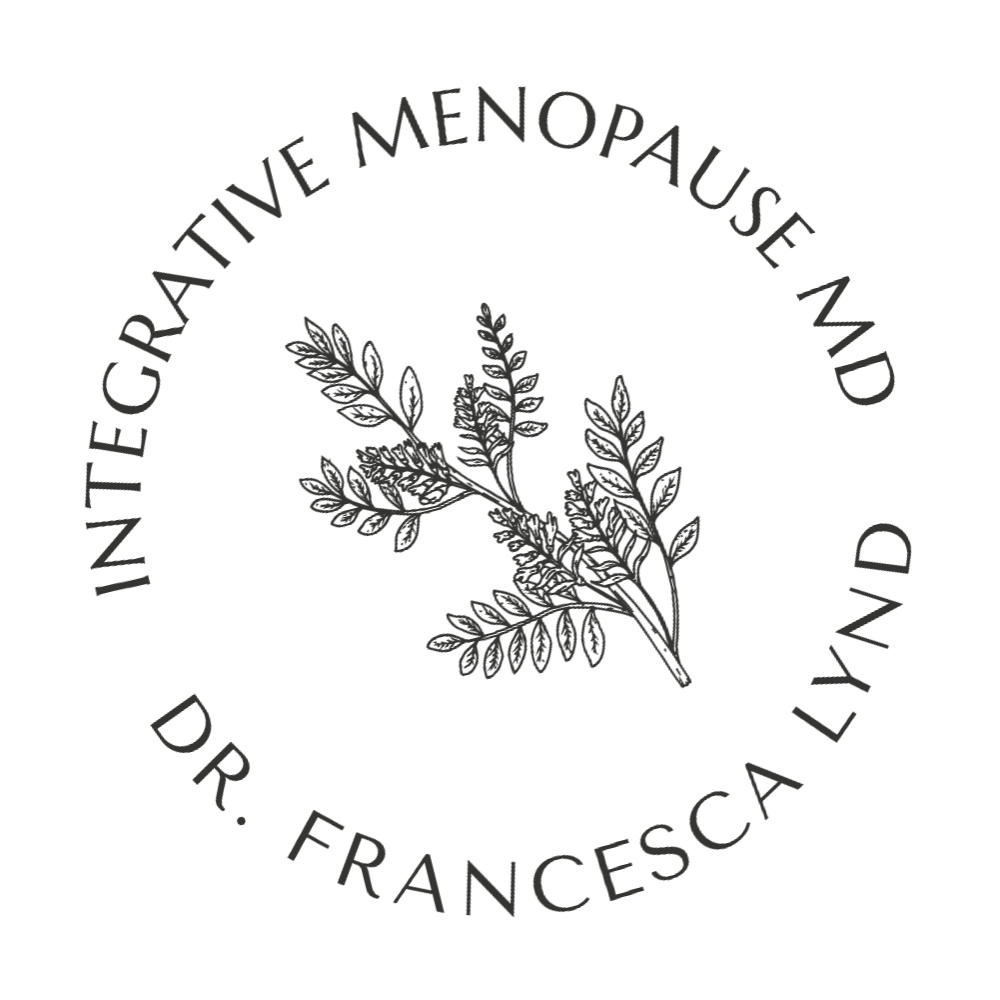Unlocking the Mysteries of DHEA: A Guide for Menopausal Women
Oct 02, 2023
Ladies, let’s continue our journey through hormones—specifically, DHEA.
It might not be a household name, but for menopausal women, DHEA (dehydroepiandrosterone) is certainly one to know. Here's why you need to know about it!
DHEA is a hormone naturally produced in your adrenal glands. Along with its sulfated form (dehydroepiandrosterone sulfate), it is one of the body’s most abundant steroid hormones. Although your adrenal glands are its primary producers, your ovaries (and men, your testes) and even your brain also contribute. DHEA has effects on its own, but it is also a precursor to other hormones such as testosterone and estrogen.
Natural DHEA peaks when we are young adults and then slowly falls as we get older. DHEA can be measured from a blood test called DHEA-S which is the most reliable measure of adrenal androgen production. Saliva tests are considerably less accurate for this hormone.
Now, about those supplements…
DHEA supplements have been studied for various potential benefits, but here's the catch - the results are mixed bag. While some claim it promotes youthfulness and longevity, the evidence isn’t strong. But that said, it has been well studied in supporting bone health, maintaining muscle mass when combined with exercise, brain health (both cognition and mood) as well as reviving libido. Taking the data in total, we do know that oral DHEA is beneficial for some menopausal women and could be included as part of a discussion of hormone therapies.
But hold on, before you rush to the nearest pharmacy shelf, a word of caution…
Even though this hormone is over the counter , I would certainly recommend against self supplementing with oral products. It is actually a prescription medicine in many European countries. Appropriateness for you, will vary by your unique health history.
DHEA is typically taken by mouth in its over the counter supplement form and doses vary quite widely from 5mg to 100mg. I would recommend that you always check your blood level prior to starting this hormone supplement. Then start with a lower dose. In particular if taking it for low mood symptoms. If your level is not low, then you would be unlikely to see benefit. DHEA may exacerbate mania, irritability and aggression at higher oral doses, especially if on other medications. While DHEA can benefit some mood disorders, individuals with bipolar disorder should avoid it! DHEA’s impact on mood can be unpredictable and may worsen symptoms for people with certain diagnoses. So if you decide to go down this path, start low and recheck your levels before increasing your dose --while working with a knowledgeable practitioner!
The good news is we do know that vaginal DHEA is beneficial for some menoapusal women and is currently FDA approved for the treatment of “genitourinary syndrome of menopause” which refers to a thinning of vaginal tissue that can cause irritation, making intercourse painful. Intravaginal DHEA (prasterone) is currently the only FDA-approved vaginal androgen. In addition to the vagina, there are also androgen receptors on the vulva (labia, clitoris and vestibule). Some women find improvement in arousal when using DHEA vaginally (and at the vaginal opening).
Vaginal DHEA (or prasterone), is a cream inserted vaginally on a daily basis. Many women find this excessive, but the main negative side effect is vaginal discharge. We seriously need more options!
A quick note on drug induced side effects here:
Spironolactone is a very commonly prescribed drug, in particular for mid life hair loss. However, spironolactone does cause hormonally related genitourinary syndrome of menopause due to the way it works. It lowers testosterone by blocking the testosterone receptors. So it blocks the androgen receptors in the vulva (labia, clitoris and vestibule). So while it may help with hair growth, it may seriously impact arousal and sexual function. We all know which benefit most women will choose:) Seriously though, if this occurs, vaginal DHEA will be your “work around”. Ask your doctor if it would be right for you and ask for a prescription!
Now let’s circle back to safety.
DHEA converts to testosterone and estrogen. So when on DHEA orally, you would need to be aware of the potential for increasing estrogen in your body. Especially if you are on other forms of estrogen. There are not really any testosterone receptors in the uterus so you don’t have to worry so much about stimulating the uterine lining to grow. So hyperplasia of the endometrium or endometrial cancer are not seen. There is some concern with other cancers and this appears dose related.
DHEA may also impact cholesterol levels by lowering HDL-cholesterol. But, at the same time, studies associate low levels of DHEA with an increase in heart disease. However, we do not know if supplementing with DHEA is safe or reduces heart disease risk. Avoid it if you have heart issues.
While DHEA has been shown to reduce abdominal fat and improve insulin resistance, it also interacts with insulin and alters effectiveness. Avoid if you are on insulin. And if diabetic and not on insulin, work with your doctor if thinking about oral DHEA.
There are many more drug interactions when taken orally. Too many to list. This hormone is metabolized by the liver when taken orally, so like estrogen and testosterone, perhaps a transdermal route is the way to go if you are considering a trial for effects beyond vaginal comfort and sexual health (for this use vaginal only option).
I want to emphasize, be careful with oral dosing. Avoid oral dosing for long periods of time and keep the dose low, check blood levels of DHEA-S. The vaginal product is quite safe. But if concerned, check your blood level.
And a final word on compounding. DHEA cream is made from wild yams and not well absorbed (like progesterone). For this reason, some companies sell a micronized product for better absorption (oral, transdermal cream and vaginal cream). Again we run into the issue of dosing, individual absorption and need to check blood levels. Working with a knowledgeable practitioner is imperative. As for the vaginal cream, yes, we have an FDA-approved product, but it is rarely covered by insurance. Sadly, once again we face the state of women’s health. A product that would help many women in the area of sexual health and arousal (FDA-approved and data supporting its use), no coverage. Don’t get me started on the inequity, given Viagra coverage!
So, there you have it, the lowdown on DHEA. It is a vital hormone to keep in our menopause toolbox. But remember, always consult with your menopause practitioner before diving in. Your health is worth it!
Wellness always,
Integrative Menopause MD
This blog is intended for educational and entertainment purposes only. Please consult your own health care provider before acting on any information or advice in my blog or on my website. Remember, healthcare and wellness are unique to your personal history and needs.





